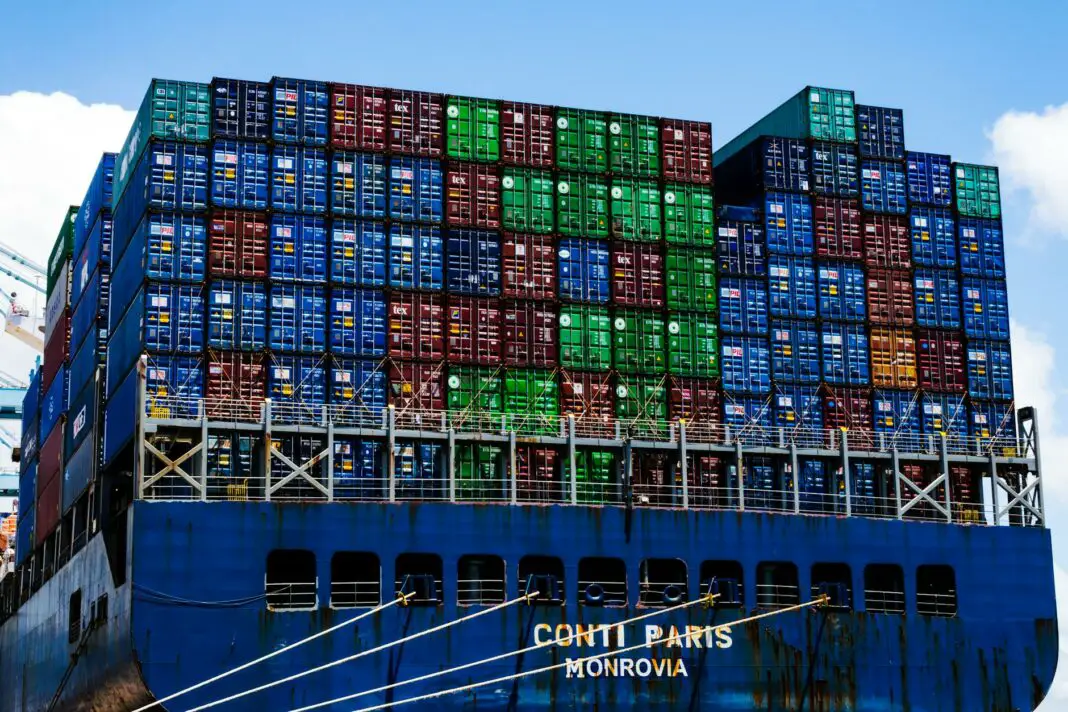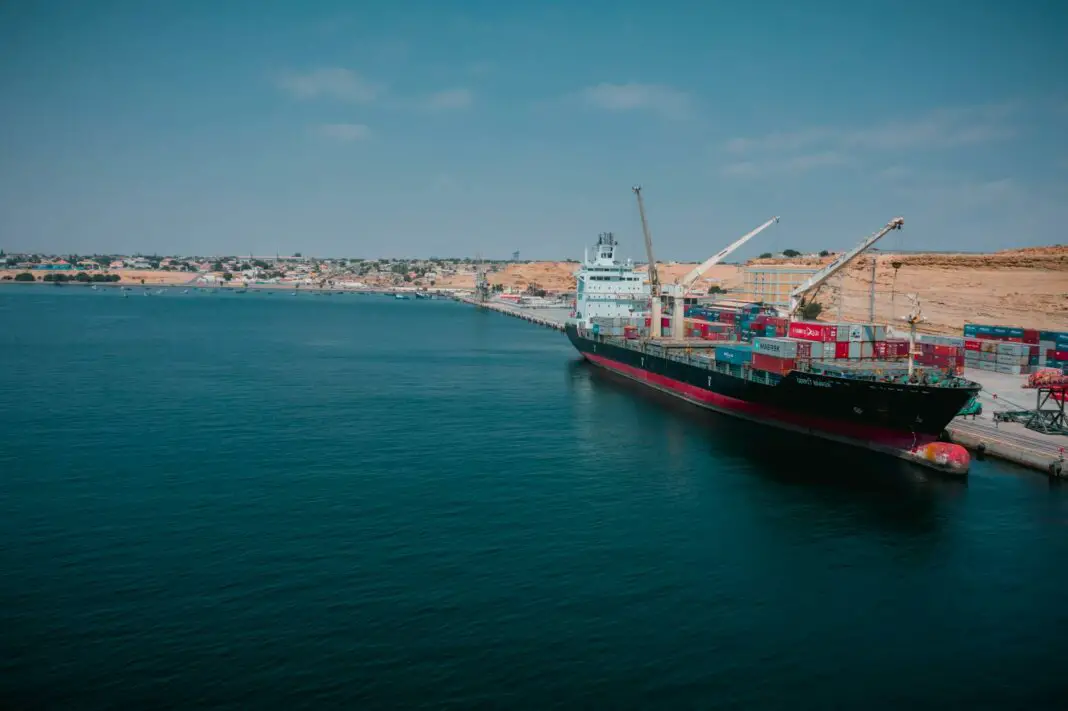Are you curious about whether Thailand is the ultimate hidden gem for supply chain logistics? This vibrant Southeast Asian nation has long been recognized for its breathtaking landscapes, rich culture, and exquisite cuisine. However, there’s a lesser-known aspect that’s rapidly gaining traction among global businesses: its burgeoning supply chain logistics sector. In this post, we will delve into Thailand’s logistics landscape, exploring why it stands out as a prime destination for companies looking to enhance their supply chain operations.
From the thriving infrastructure that supports logistics to the strategic geographic location that connects various markets, Thailand is positioned as a key player in the global supply chain. Additionally, we’ll discuss actionable insights and real-world examples to illustrate why logistics professionals are increasingly turning to Thailand for their supply chain solutions. Ready to uncover the treasures of Thailand’s logistics potential? Let’s embark on this journey!
Table of Contents
- Logistics Infrastructure in Thailand
- Thailand’s Strategic Geographic Location
- Government Support and Incentives
- Real-Life Success Stories
- Actionable Insights for Businesses
- Why Choose Thailand for Supply Chain Logistics
- Final Thoughts on Thailand’s Logistics Potential
- Frequently Asked Questions
Logistics Infrastructure in Thailand
Logistics infrastructure in Thailand is exceptional and continually improving, offering businesses a robust framework for operations. The nation’s extensive road networks facilitate the efficient movement of goods throughout the country, connecting major cities and industrial zones like Bangkok, Chiang Mai, and Phuket. Additionally, the rapid expansion of rail systems and highways significantly reduces transportation time and costs, enhancing supply chain efficiency.
Furthermore, the presence of advanced ports, such as Laem Chabang and Bangkok Port, streamlines the import and export processes, making it easier for companies to reach international markets. Warehousing facilities equipped with modern technology are also proliferating, catering to the increasingly complex needs of businesses growing within the region. Such enviable infrastructure positions Thailand as a competitive logistics hub, ready to serve both domestic and international clients.
Thailand’s Strategic Geographic Location
One of the most significant advantages Thailand offers is its strategic geographic location at the heart of Southeast Asia. Situated just a few hours’ flight from major markets like China, India, and Australia, it acts as a nexus for trade and commerce. This connectivity is not only limited to air travel but also extends to maritime logistics, with vital shipping routes conveniently passing through the region.
Moreover, Thailand shares borders with several countries, including Malaysia, Laos, and Myanmar, allowing businesses to tap into emerging markets with relative ease. This advantageous position facilitates seamless distribution channels and encourages multinational companies to establish regional headquarters and distribution centers within the country. The inherent accessibility of Thailand thus ensures quick and efficient supply chain solutions, making it highly attractive for logistics professionals.
Government Support and Incentives
Thai government initiatives play a crucial role in positioning the country as a haven for logistics operations. Numerous policies and support programs have been introduced to foster growth in the logistics sector, driving investments and enhancements in infrastructure. The government has also initiated special economic zones (SEZs) to promote logistics activities, offering tax incentives and streamlined regulatory procedures to support businesses.
Additionally, partnerships between the public and private sectors further bolster the logistics landscape. The Thai government collaborates with industry leaders to implement best practices and drive technological innovations. By actively engaging with supply chain professionals, the government acknowledges the importance of logistics in fostering economic growth and job creation. Thus, Thailand remains an attractive choice for companies looking to optimize their supply chain logistics.
Real-Life Success Stories
Many global players have already discovered Thailand’s potential for optimizing their supply chain operations. For instance, multinational corporations like Samsung and Toyota have established manufacturing and logistics hubs in the country, praising the efficiency of local supply chains. Their success underscores Thailand’s reliability as a logistics base, demonstrating its ability to meet the rigorous demands of global industries.
Moreover, the thriving e-commerce sector has further accelerated the growth of logistics within Thailand. Local companies like Lazada and Grab leverage the nation’s vast transportation networks to deliver goods quickly and efficiently. Their operational models reflect the adaptability and innovation that Thailand’s logistics sector can offer. These real-life examples illustrate the practical advantages businesses can reap by investing in Thailand’s supply chain solutions.
Actionable Insights for Businesses
For companies seeking to optimize their supply chain logistics, several actionable insights can be drawn from Thailand’s logistics success. First and foremost, businesses should consider forming partnerships with local logistics providers who have a deep understanding of regional market dynamics and regulatory frameworks. This collaboration can lead to more efficient operations and reduce costs significantly.
Additionally, companies should keep a close eye on emerging technologies, such as AI and blockchain, that are increasingly shaping the logistics landscape. Embracing these innovations can enhance transparency and streamline operations, providing a substantial competitive edge. Moreover, staying informed about government incentives and opportunities within the logistics sector can lead to unexpected advantages, contributing to long-term success in the region. By leveraging these insights, businesses can tap into the vast potential presented by Thailand’s logistics sector.
Why Choose Thailand for Supply Chain Logistics
The case for choosing Thailand as a logistics destination is compelling and multifaceted. With robust infrastructure, a strategic geographic location, and strong government backing, the nation is well-equipped to handle the demands of modern supply chains. This combination not only enhances operational efficiency but also promotes business sustainability, making it an optimal choice for global logistics endeavors.
Moreover, the dynamic nature of Thailand’s economy encourages continuous improvement, leading to innovative service offerings within the logistics sector. The collaboration between industries fosters a culture of adaptability, essential for navigating the complexities of supply chain management today. Ultimately, declaring Thailand as the ultimate hidden gem for supply chain logistics is more than just an opinion; it is a reasoned assertion backed by exploration and evidence.
Final Thoughts on Thailand’s Logistics Potential
Evaluating Thailand’s emerging role in the global supply chain reveals a landscape rich with opportunities for growth and innovation. By embracing the advantages that Thailand has to offer, like exceptional infrastructure, strategic location, and government support, businesses can effectively enhance their supply chain operations. Those who venture to explore opportunities within Thailand’s logistics sector will likely find not only a destination but a partner in sustainable growth, leading to long-term success.
Frequently Asked Questions
1. What makes Thailand a good choice for supply chain logistics?
Thailand offers an impressive logistics infrastructure, advantageous geographic location, and government support, making it an ideal choice for businesses looking to optimize their supply chain operations.
2. How does the government support the logistics sector in Thailand?
The Thai government has implemented various policies, including tax incentives and the establishment of special economic zones, to foster growth and attract investments in the logistics sector.
3. Are there any success stories of companies benefiting from Thailand’s logistics?
Yes, major corporations like Samsung and Toyota successfully operate in Thailand, taking advantage of the efficient local supply chains, reflecting the potential of the logistics sector.
4. What technological advancements should companies consider in logistics?
The use of AI and blockchain technology in logistics can improve efficiency and transparency, enabling companies to stay competitive in an increasingly complex marketplace.
5. Are there resources available for businesses looking to enter Thailand’s logistics market?
Yes, businesses can explore government resources, industry associations, and local partnerships to gain insights and guidance on entering the logistics market in Thailand.
Image Credit: Pexels





